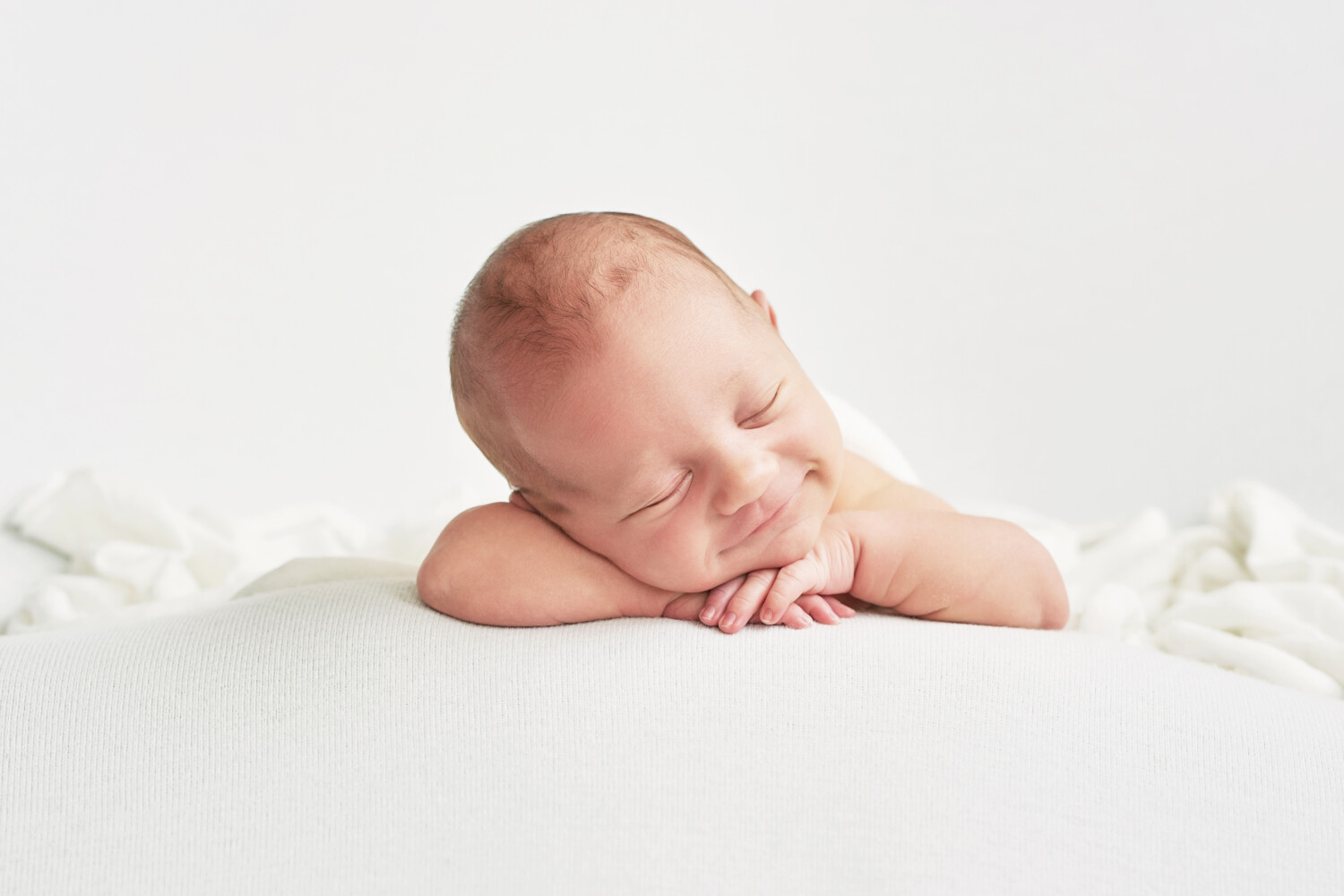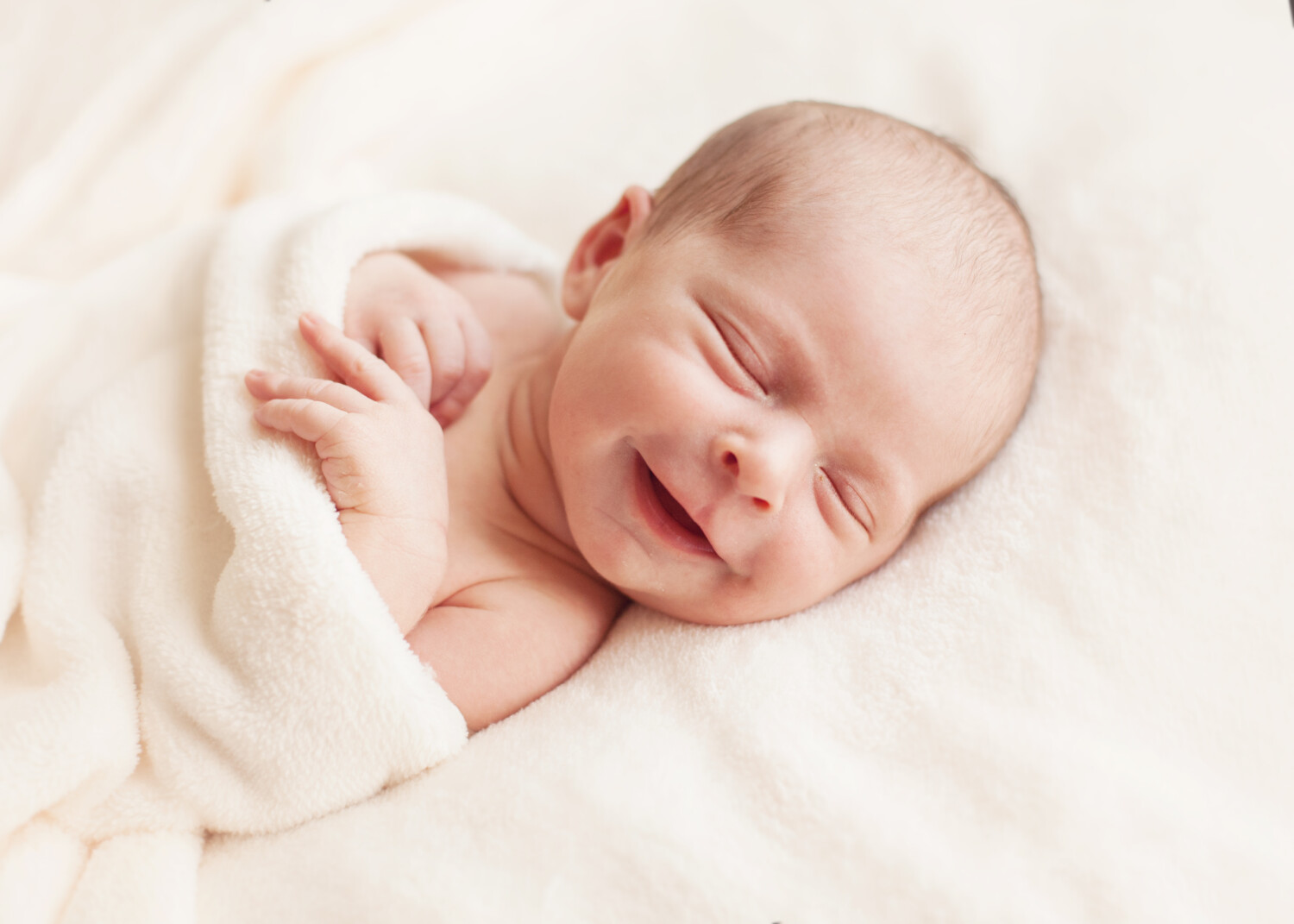Is there anything cuter than a smiling infant?
Why yes, there is — a baby smiling in their sleep. Those tiny, twinkling baby grins were one of the many delights I experienced as a new mom. (My babies were, of course, the cutest babies ever dreamt up.) But I do remember having to plug my ears when an irritating know-it-all pointed out the “truth of the matter:” “She’s not really smiling, she’s just passing gas.”
But is that actually the truth? Why do babies smile in their sleep, really?
The short answer is that no one knows for sure, but there are a number of theories.
Extensive Movement During Sleep
Researchers have noted that most of the time, babies smile while experiencing the eye-fluttering movements of “active sleep” — a sleep stage that’s similar to REM sleep (or dream sleep) for adults. Studies show that adults smile in response to positive dream imagery. Could it be that babies in an active phase of sleep are also dreaming and responding to the imagery they see?
Again, we don’t have definitive answers. Here’s what we do know: Babies make all kinds of movements during active sleep. They twitch, they suck in their lips, they smile and they frown. Putting aside the question of why they do this, child development experts certainly see the benefits of all this movement.
MORE: Study finds that unborn babies smile when mom eats carrots but frown when it’s kale
“Studies suggest these movements may strengthen the muscles a baby will intentionally use to smile and to make other facial expressions as they age,” Amaka Priest, M.D., a pediatrician, told Parents.

These initial, newborn smiles are “reflexive smiles,” as opposed to the “social smiles” that happen in response to, say, their mom’s loving gaze. A reflexive smile is random, and it’s something that researchers have noticed babies do even in the womb.
It “usually goes away around 2 months — about the same time the social smile develops,” pediatrician Denise Scott, M.D., told The Bump.
But, What About That Gas?
Yes, the “passing gas” idea is still kicking around among researchers who study these things. This theory posits that baby smiles are a response to the gastrointestinal sensations they’re experiencing as their bodies embark on this new process of digestion.
“Those early adorable smiles may be due to a variety of other reasons … like passing stool [or] passing gas,” pediatrician Brittany Odom, M.D., told Healthline.

Do Babies Dream?
Of all these theories, my favorite is this one about babies smiling in response to positive dream imagery.
Because babies spend a lot of time in that eye-fluttering “active” stage of sleep, “it would be a logical assumption that babies do dream and that it has something to do with their brain development,” Jodi Mindell, Ph.D., associate director of the Sleep Center at Children’s Hospital of Philadelphia, told Parents.
But many neuroscientists believe that this brain development doesn’t necessarily involve dreaming — not at first, anyway. A safer assumption might be that there’s a lot going on in babies’ brains when they’re sleeping, but the activity is more about physical growth. The newborn brain is one-quarter of the size of an adult brain, and it doubles in size during the first year of life. During this time, the brain is forming pathways and developing the cognitive ability that will later allow them to dream.
So, yes, it’s most likely that those first sleep smiles are the “reflexive” variety. They’re still adorable, though.
MORE: According to science, there’s no such thing as holding your baby too much
Any products or services mentioned above were selected independent of sales and advertising. However, Simplemost may receive a small commission from the purchase of any products or services through an affiliate link to the retailer's website.
This story originally appeared on Simplemost. Check out Simplemost for additional stories.


